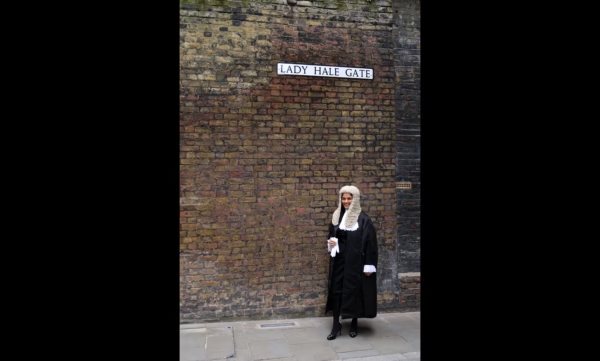
Introduction
Welcome to the December edition of the Property Newsletter from Hardwicke.
Well there we have it; another year almost elapsed. It’s been a very busy year for the Hardwicke property team, and from what we can gather, for most of you as well. I hope you manage to enjoy some rest of the festive period, ready to return to see what 2019 brings.
For our last 2018 newsletter, Andrew Skelly considers disclaimer, Alexander Bastin gives his take on Franses, and Steven Woolf spins my Wheel of Questions.
Simon Allison – Editor
Activity Report – What we have been up to
Amongst other things, Simon Allison had three days on a two day CCMC (with judgment on security for costs to be handed down in a fourth day of two where the preliminary issue trial for which we are budgeting is only three days…). In addition, cladding related instructions continue, including obtaining another determination of the payability of waking watch costs in an ACM clad building.
John Clargo has been advising on rent charge deeds (leasehold as well as freehold land), trying the fraudulent transfer of registered land and appealing the interplay of the FtT and the court in relation to the forfeiture of a residential lease for service charge arrears. Oh, and there was some knotweed too.
Laura Tweedy has been busy settling most of her trials in very favourable terms for her clients, whilst also wishing she could get her teeth into some good cross examination!
A busy month for Monty Palfrey, who is still trying to get his head round the stipulation (suggestion) in the Land Registry Practice Guide that Form FR1 (Application for First Registration) should be used for an application by a leaseholder of registered land to claim title to adjoining registered land (the loft above his flat which has been in his possession for thirty years or so) upon which he has encroached from a registered freehold owner!
It’s been a month of beneficial interest and TOLATA claims for Katrina Mather including acting for a Trustee in Bankruptcy in a two-day trial in Manchester.
Already having permission to appeal on one ground, against a decision of the FtT in relation to an adverse possession matter, Andrew Skelly obtained permission from the Upper Tribunal on two further grounds. Otherwise, he was trekking up and down the country on several FtT appearances, including service charge disputes, collective enfranchisement valuations, and an appeal against a refusal by a local authority to licence all of the rooms in an HMO.
Steven Woolf can’t escape the protective injunction work he is doing for a number of local authorities and commercial developer clients. Four new instructions as well as final hearings for three local authorities he has already successfully obtained injunctive relief for previously made up much of his month, with other work neatly fitting in.
In addition to dealing with an ongoing collective enfranchisement and service charge dispute, Morayo Fagborun Bennett has been using the new criminal sentencing guidelines in committal proceedings and helping clients with the current influx of disrepair and EPA matters.
Alastair Redpath-Stevens has been dealing with a variety of matters including enforcing Tomlin Orders in the Chancery Division, ousting tenants in the County Court, settling improvement notices in the First-tier Tribunal and deploying various “interesting” estoppel arguments in sundry venues whilst also advising on local authority appropriations and covenants in leases and remedies in nuisance. He is looking forward to a peaceful Christmas!
Much of Daniel Gatty’s time this month has been spent on two trials with rather different subject matters. The first concerned whether transfers of two properties in London had been forged in 2015. The second concerned the effect of a 1964 conveyance of fields in Devon. The rest of his time was spent on an assortment of L & T issues.
Jamal Demachkie has spent the last few weeks convincing clients to avoid court by way of three (successful) mediations, and has spent a week in Central London arguing over encroaching vegetation and nuisance caused by surface water.
John de Waal QC has been advising developers on restrictive covenants.
Lina Mattsson has had a month of back-to-back trials, including an actual trial on the market rent and a tenant’s break clause in an unopposed lease renewal! Two more trials to go and then Christmas shopping.
When not enjoying the hospitality of the PBA, PLA or P&T, Peter Petts has been dealing with knotty problems including the sale of a gentlemen’s nightclub and the purchase of beer. All together, a very trying month.
James Hall has been instructed in yet another case involving the accidental discharge of a mortgage to advise on whether the discharge can be rescinded for mistake; and is also dealing with rectification of a rent review clause in a commercial lease.
Over the last few weeks Alex Bastin has scored a hat-trick of successful appeals with (i) the slashing of a very substantial fine for breaches of HMO licensing regulations in the Crown Court (!), (ii) winning an appeal against HHJ Luba QC’s construction of a tenancy agreement in the High Court (see Network Homes Ltd v Harlow [2018] EWHC 3120), and (iii) resisting an appeal in the Court of Appeal (see Alexander v Willow Court Management Co (1985) Ltd [2018] EWCA Civ 2325). Apart from that, it’s been the usual slew of forfeiture, commercial lease renewals, dilapidations and service charge disputes.




Emily Betts: Did you see? You may have missed...
Rashid v Nasrullah [2018] EWCA Civ 2685; [2018] 11 WLUK 493, 29 November 2018
Adverse Possession – Fraud – Limitation – Rectification – Registered Land
The Issue
The issue was whether a fraudster who had unlawfully forged a transfer document to purport to transfer a property into his name could claim adverse possession of the property as against the true owner, even though he was the registered proprietor for the period of possession.
The First Tier Tribunal and the Upper Tribunal said no, but the Court of Appeal allowed the appeal.
The Facts
M was the registered proprietor of the property until 1989 when F’s father perpetrated a fraud and procured the transfer of the land to himself and his registration as its proprietor. F was complicit in the fraud and in 1990 his father gifted him the land and he was registered as proprietor. In 2011 M sought rectification of the register. F objected on the basis that he had been in adverse possession for over 20 years.
The Appeal
The leading judgment was given by Lewison LJ. He set out the relevant provisions:
- At the time of the forged transfer the regime in force was the Land Registration Act 1925, and accordingly pre-dates the current scheme under the Land Registration Act 2002.
- Section 75(2) of the 1925 Act provides that any person claiming to have acquired title under the Limitation Acts may apply to be registered.
- Under s.15(1) of the Limitation Act 1980 no action could be brought to recover land more than 12 years after “the right of action accrued”.
- Schedule 1 to the 1980 Act at paragraphs 1 and 8 provides that where the owner has been dispossessed “the right of action” was created as having accrued on the date of the dispossession as long as the land was in the possession of someone “in whose favour time could run”, i.e. a squatter in adverse possession.
Lewison LJ reviewed the leading authority of Pye v Graham [2002] UKHL 30; [2003] 1 AC 419 in which the House of Lords considered these provisions. He placed particular importance on Lord Browne-Wilkinson’s words that a “dispossession” simply means that one person has taken possession from another without that other’s consent.
In view of that the Court considered M’s reliance on the case of Parshall v Bryans [2013] EWCA Civ 240, [2013] Ch. 568 to support the argument that time cannot run in favour of a squatter where they are the registered owner. In Parshall, Mummery LJ held that there was no dispossession where a party had registered title. Lewison LJ rejected this analysis, holding that the reasoning was irreconcilable with the analysis in Pye. In short, the only relevant question was whether one person has taken possession from another without that other’s consent.
King and Peter Jackson LJJ gave an additional judgment, agreeing with Lewison LJ, and pointing out that there are certain people in whose favour time cannot run (true trustees, tenants and licensees) but to expand this class to include registered owners is not supported by any policy logic. They pointed out that time runs in favour of a scoundrel who seizes land, fences it off and squat on it, it is difficult to see why it should not run in favour of a scoundrel who does that and then for good measure forges a transfer document. They expressed sympathy for M as the victim of such a brazen fraud but stated that the outcome in this case was not the result of the fraud but of the true owner’s subsequent failure to take effective action to challenge it between 1989 and 2001. He did not apply until 2013 which was then too late.
The appeal was therefore allowed.
“Hardwicke Unrobed” - Get to know us better
Each month, a member of our property team has to spin ‘Simon’s Wheel of Questions’ and answer the first three questions that come up. This month, Steven Woolf tried his luck.
Q: Name something you have done that has given you extreme happiness.
A: Travelling by helicopter and visiting the Grand Canyon.
Q: What was your first job?
A: If job is to be the first time that you went working in order to earn some money then I guess it was walking my local streets trying to find scrap metal. I remember using a children’s wheelbarrow. I must have been about seven or eight. My first job was working in a video shop. I bet most of the readers don’t even know what a video is. My first legal job was as an office assistant at a West End firm of solicitors. I worked in the Summer Holidays and other odd days whilst at college. It was good experience and enabled me to come to the conclusion I wanted to be a barrister.
Q: What’s something you say you will do, but never will?
A: Run the London Marathon. I took up running about five years ago and within a few months was comfortably running 10-15km. I thought it would be an easy jump to 40 km, but it isn’t. Its more time related than anything else, as so much time training is required, although to be honest my knees will be the ultimate reason why I will have to take in the atmosphere of the London Marathon from behind the barricades.
Want to try yourself?
Contact us
If you would like to discuss any of the topics in this newsletter, please contact a member of our Practice Management Team:
The Property Newsletter is edited by Simon Allison.